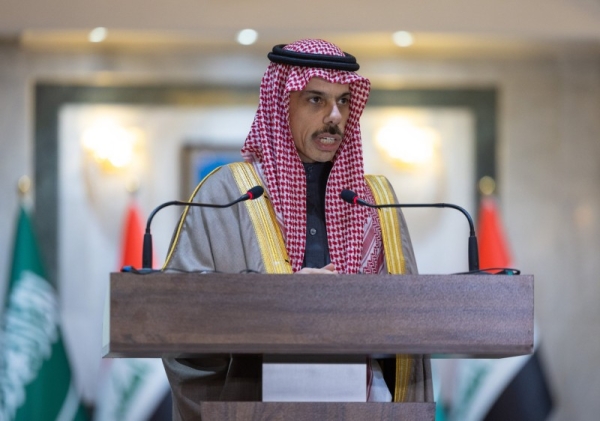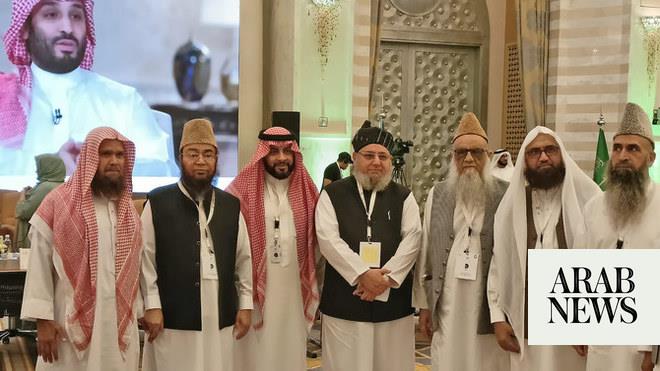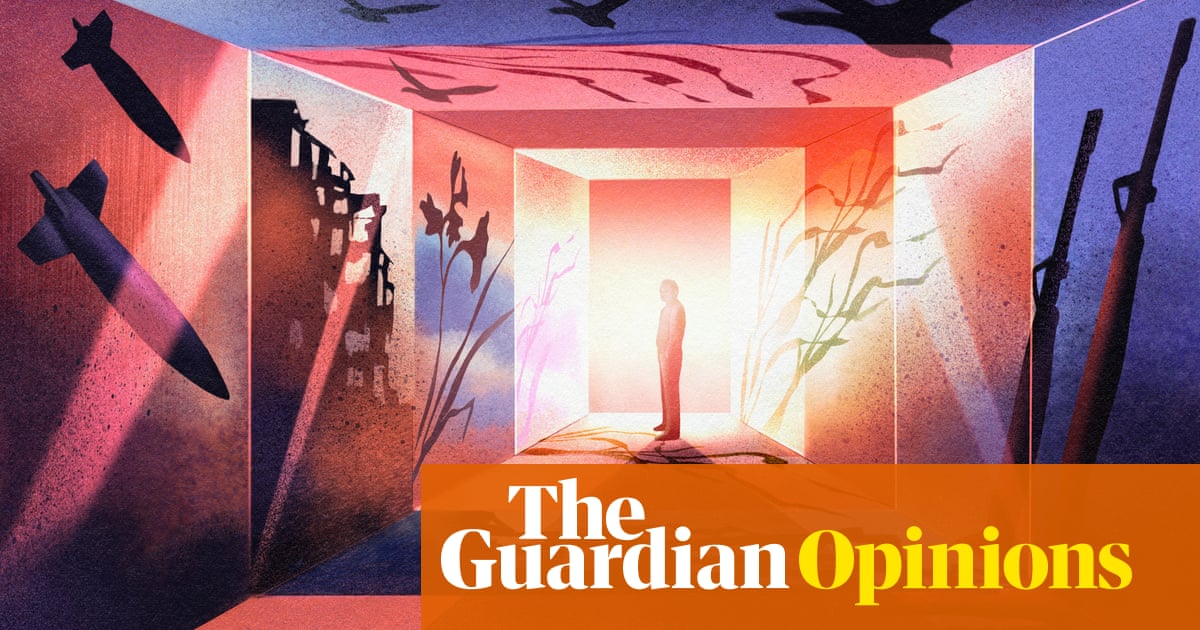
The Pakistani leadership has done well by categorically dismissing media speculation about any differences in its relationship with Saudi Arabia. In this regard, Foreign Minister Shah Mahmood Qureshi’s clarification of his controversial public statement and its endorsement by Prime Minister Imran Khan, coupled with Pakistan Army Chief of Staff Gen. Qamar Javed Bajwa’s visit to Riyadh for military purposes, have reinforced the fact that the exceptionally close bond between the two nations is resilient enough to absorb such critical shocks.
However, it is now quite clear that there was an organized attempt by hostile forces to create friction in Saudi-Pakistan ties. This started when Qureshi’s public remark that was critical of the Organization of Islamic Cooperation’s (OIC) role in Kashmir was blown out of all proportion to suggest that Riyadh and Islamabad had parted ways. The so-called notion of Saudi Arabia refusing to sustain its economic support to Pakistan was propagated as an additional justification. Then, Bajwa’s previously scheduled visit to Saudi Arabia was wrongly portrayed as a “damage control” bid. If this was not enough, the fact that his purely military trip did not include a meeting with Crown Prince Mohammed bin Salman was misconstrued as a “royal snub.”
It is therefore quite reassuring that Qureshi has himself taken the lead to reiterate that there was no change in Saudi Arabia’s position on the Kashmir dispute, or that it had asked Pakistan to pay back loans or stopped its oil supply. “It’s all speculation. No such decision taken,” he said last week, adding that Pakistan and Saudi Arabia had a “heart-to-heart relationship with a shared goal of peace.”
The same day, Pakistan’s Foreign Ministry “strongly (condemned) recent missile and drone attacks towards the Kingdom of Saudi Arabia by Houthi militia,” and called for an “immediate cessation of such attacks.” It also stated: “Pakistan reiterates its full support and solidarity with Saudi Arabia against any threats to its security and territorial integrity.”
Earlier in the month, Qureshi clarified that Saudi Arabia “acknowledges the feelings and aspirations of Pakistanis,” and, even while visiting China on Aug. 21, he said that relations between the two brotherly countries “have always been good and will remain good in the future.” Qureshi was in Beijing to participate in an already-scheduled second round of the China-Pakistan strategic dialogue, yet certain media outlets speculated as if China had come to the rescue of Pakistan’s economy after Saudi Arabia refused to help.
Therefore, it was a timely act on Prime Minister Khan’s part to also dismiss the rumors of any rift in Pakistan-Saudi ties as “completely baseless” one day after Bajwa visited Riyadh. Finally, Saudi Arabia’s Vice Minister of Defense Prince Khalid bin Salman, who is the younger brother of Crown Prince Mohammed, also rebuked the rumor-mongers by tweeting: “Met today with my brother, H.E. General Qamar Bajwa, Pakistan’s Chief of Army Staff. We discussed bilateral relations, military cooperation, and our common vision for preserving regional security.”
Saudi Arabia and Pakistan have long-standing defense ties, which are governed by a bilateral security cooperation agreement signed in 1982, under which Pakistan assists Saudi Arabia in military training and defense production capabilities. Pakistani troops are also stationed in Saudi Arabia in training and advisory roles. That Pakistan’s former army Chief of Staff Gen. Raheel Sharif commands the 41-member Islamic Military Counter Terrorism Alliance headquartered in Riyadh is a reflection of their close military collaboration. Bajwa’s visit also reaffirmed the two nations’ mutual quest for the further strengthening of their security cooperation.
Just as in military-to-military ties, there is no issue in people-to-people relations between Saudi Arabia and Pakistan. Millions of Pakistanis work in Saudi Arabia, and millions of them pay homage to Makkah and Madinah each year. Having served in Pakistan for almost a decade as Saudi ambassador, I can proudly claim that the love and affection the Pakistani people have for Saudi Arabia and the Muslim Ummah is unparalleled. Therefore, if there is one lesson to learn from the most recent conspiracy to sabotage the historic Saudi-Pakistan relationship, it is that we must reset its political fabric in a manner that matches mutual public aspirations and sustained defense cooperation.
Enhanced political cooperation between Saudi Arabia and Pakistan would require close coordination over bilateral and regional policies and strategies. Pakistan is a very important Muslim nation in the eyes of Saudi Arabia. I say so as a Saudi citizen, having retired from diplomatic service almost half a decade ago, as well as on the basis of my humble knowledge of working in Pakistan. The Kingdom is changing for good, offering new opportunities for the young and educated youth, which Pakistanis must be aware of.
Saudi Arabia today aspires to break the shackles of bitter history and move into a progressive future.
Dr. Ali Awadh Asseri
It is equally important to understand what Saudi Arabia currently perceives, or aspires for, in the wake of the current challenges facing the Muslim Ummah. Here is a brief purview of their historical context and current dynamics.
For half a century, Saudi Arabia has provided a leadership in the Islamic world that is premised on the pursuit of unity and peace for all Muslim people. Major crises have come along the way — the foremost of which was the 1979 ayatollah’s revolt in Iran, which installed a regime that has exported sectarian militarism across regional frontiers. Its manifestations are amply clear in several Arab countries today, especially Yemen, Iraq, Syria and Lebanon. Also, for Pakistan, recent history provides sufficient proof of Iran’s destabilizing conduct in the Baloch insurgency, as well as the Afghan war. Until now, Tehran has been a force for regional disintegration. How can we presume that, after having reportedly agreed a controversial economic deal with China, the Iranian regime will mend its ways and work for a regionally integrated world accruing collective socioeconomic benefits for its inhabited nations?
Saudi Arabia was reforming in the decade before 1979 — a process started by King Faisal bin Abdelaziz — but this was reversed by the ayatollah’s revolt. Subsequent decades engaged the Kingdom in an unnecessary quest to safeguard the Ummah from any division on sectarian grounds. Since 2015, Crown Prince Mohammed has renewed Saudi Arabia’s modernist journey by unveiling Vision 2030, under which major sociopolitical reforms have begun.
Consequently, the current Saudi national discourse revolves around youth education, women’s empowerment and public entertainment. Slowly but surely, the Saudi economy is diversifying away from oil. The national priority lies in developing agriculture, industry and infrastructure. New high-tech future city projects such as Neom are underway. This grand transition could transform Pakistan’s workforce in Saudi Arabia from performing menial jobs to becoming engaging in skilled professions.
Besides reforming from the inside, Saudi Arabia is diversifying its economic integration beyond the Western world or Arab regions toward the economically promising countries and regions of Asia, including with China, Russia, India, Pakistan and the Association of Southeast Asian Nations. Hence, both in its domestic and international outlooks, Saudi Arabia today aspires to break the shackles of bitter history and move into a progressive future, which is what Vision 2030 is all about.
On the contrary, if the ayatollahs of Iran were not enough to sabotage Saudi Arabian progress and Islamic unity in the past, recent years have seen the emergence of a new self-proclaimed leader of the so-called Sunni Muslim world: Turkey’s Recep Tayyip Erdogan. He — on the ashes of his own people and the suffering of the Syrians next door — wants to revive the decadent Ottomans. In the ideational sphere, he sponsors soap operas that romanticize imperial wars and force Muslims to think backwards rather than move forward.
Erdogan’s Turkey has, more recently, ganged up with Iran and Qatar. Together with Malaysia under ex-Prime Minister Mahathir Mohammed, they organized a select Islamic gathering in Kuala Lumpur last year, which Pakistan was wise enough to boycott. The aim was to divide the Muslim Ummah by creating an alternative to the OIC, the Muslim world’s largest representative organization, which is headquartered in Jeddah. As if the divisive tactics of Al Jazeera or TRT World were not enough, in the past year there has also been talk of starting a global TV channel on behalf of the Muslim world, which may serve the same purpose.
The ongoing conspiracy to undermine Saudi Arabia’s position in the Islamic world would not be complete without a few lines about the unfortunate role that Qatar has played in the Gulf region. It is a member of the Arab world’s most successful regional organization, namely the Gulf Cooperation Council (GCC), which was created precisely due to the Iranian threat in 1981 and which forbids interference in the internal affairs of other members. How can we explain Doha’s conduct when it chooses to befriend Iran at a time when it is an even greater regional danger, and also supports declared terrorist actors that are destabilizing the regimes of fellow GCC members?
In 2017, Saudi Arabia and several other Arab states were left with no choice but to blockade Qatar for these reasons. The crisis would end instantly end as and when its leaders chooses to live in peace and harmony with their fellow Arab neighbors, rather than aligning with the non-Arab regimes of Iran or Turkey, which rest on the subjugation of their Muslim populace.
These are some of the stark geopolitical realities that threaten the unity and peace of the Muslim Ummah from within. They are worth pointing out so that we remain aware of the challenges they pose and we can strive unitedly to tackle them. At the end of the day, the hatchers of the current conspiracy to divide the Muslims will meet their divine fate. After all, the holy places are in Makkah and Madinah, not in Istanbul or Tehran. It will always be in the direction of the Kaaba that millions of Muslims turn at prayer five times a day. Allah has bestowed this great gift upon Saudi Arabia alone.
Islamic faith is at the core of both the Pakistani and Saudi cultures. Therefore, both nations must carefully calibrate their bilateral and regional policies and strategies to defeat the hostile forces that are trying to create friction between them and divide the Islamic world. The recent crisis should serve as a reminder to avoid public diplomacy on such sensitive issues, as the vested interests inimical to the Saudi-Pakistani strategic partnership will jump on the opportunity, like they did this month. These vested interests, just as a point of clarification, are linked with the regimes and leaders of the countries concerned, not their people, whose salvation and prosperity are in every Muslim’s interest.
With the relationship back on track, quick progress should be made on economic issues. Apart from enhancing defense cooperation and sustaining current economic support, Saudi Arabia must reassure Pakistan of its long-term engagement for the economic development of the country through visible progress in bilateral trade and investment. For its part, Pakistan must diversify its workforce potential in response to the emerging demands of the Vision 2030 implementation process. In short, once the political relations are safe and steady, progress in economic and other spheres of cooperation becomes an organic reality.
Dr. Ali Awadh Asseri is a former senior Saudi diplomat, who served as ambassador of the Kingdom of Saudi Arabia to Pakistan from 2001 to 2009. He holds a PhD in economics from Beirut Arab University and has written a book titled “Combating Terrorism: Saudi Arabia’s Role in the War on Terror.”
Disclaimer: Views expressed by writers in this section are their own and do not necessarily reflect Arab News" point-of-view












